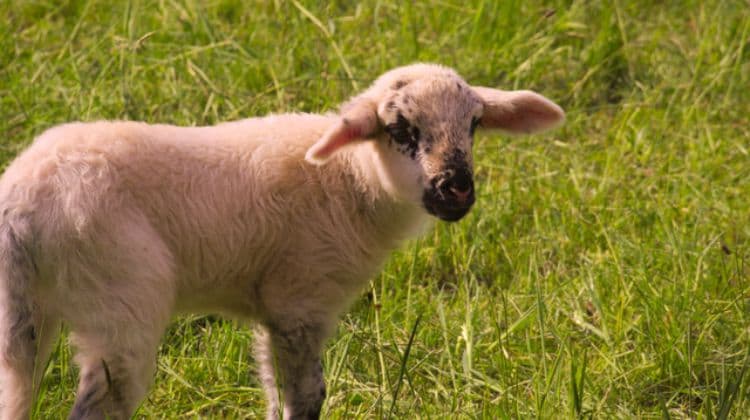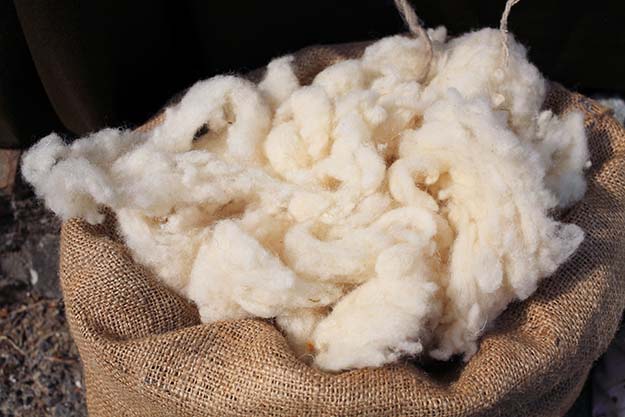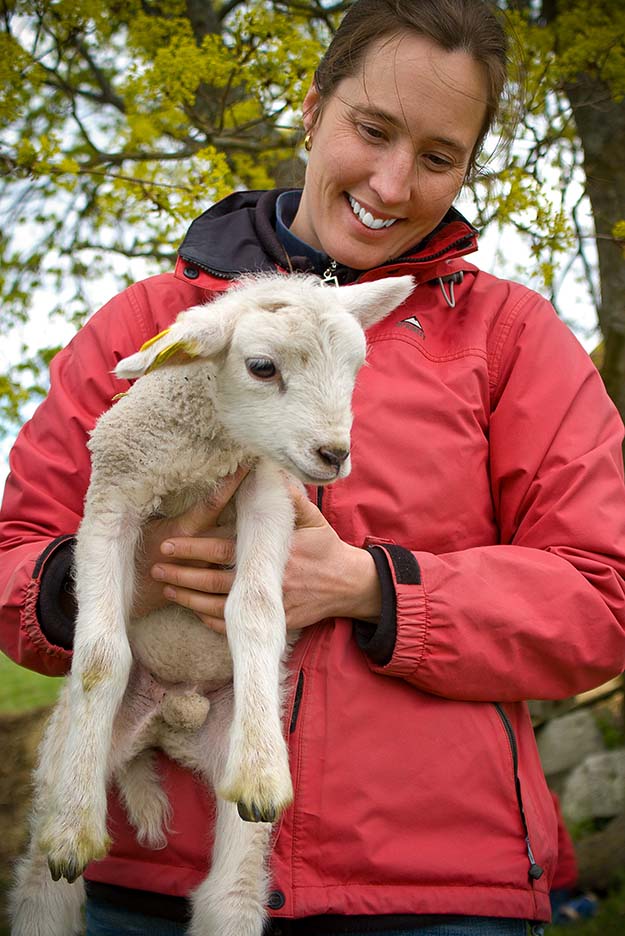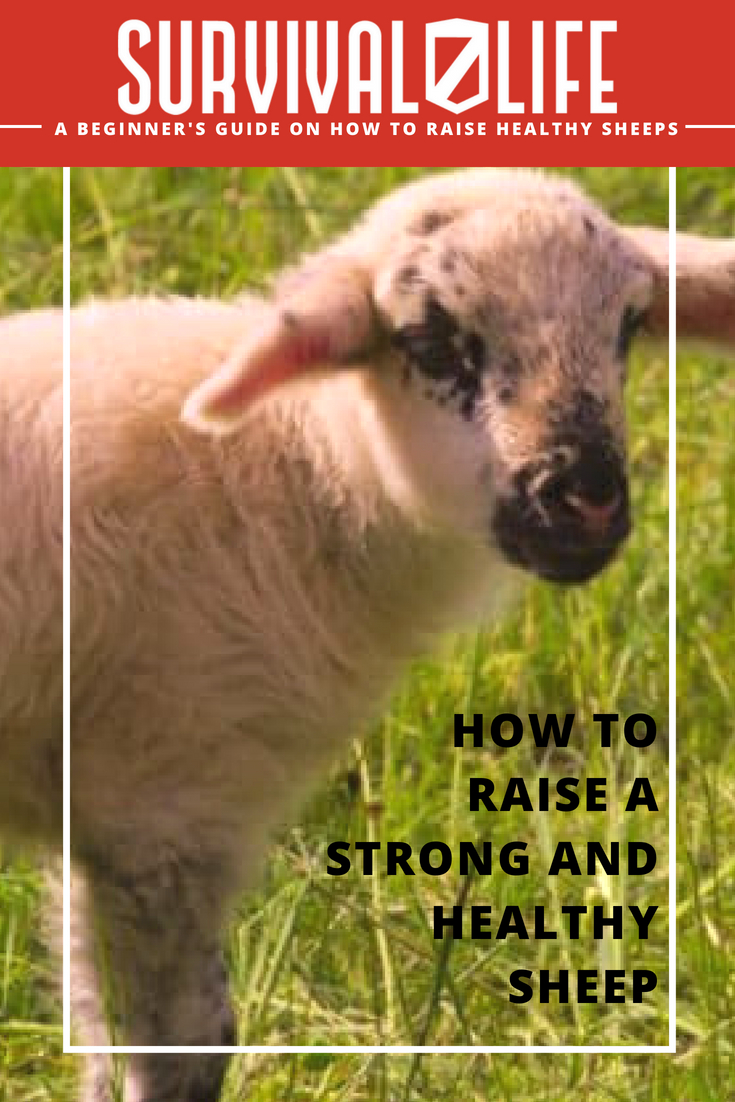Featured Articles
A Beginner’s Guide to Raising Sheep

Raising livestock is a rewarding experience in more ways than one! Check out this beginner’s guide to raising strong and healthy sheep.
How to Raise Strong and Healthy Sheep
Deciding which livestock you should raise can be a difficult decision, especially if you are a beginner. There are factors such as how much space you are able to give them, finances available (it can be expensive), the quality of your land, etc. The list of considerations can seem endless at times.
People, who are just starting out, choose smaller livestock such as sheep. They can be raised for meat, wool, and even milk. They make an excellent choice if are just beginning!
Advantages to raising sheep:
- Sheep are small and easy to handle
- They don’t require a lot of space
- They don’t need a perfect pasture
- They will eat brush, grasses, and weeds that grow in poor soil
- They are gentle and docile
- They can be trainable – you can teach them to come when called, to follow you, and to stand
- You can raise sheep for their meat, wool, and even milk in some breeds

Is raising sheep right for you?
We’ll go over the following steps to help you decide if sheep farming is right for you and the steps needed to care for your sheep:
- Decide on the reason why you want to raise sheep
- Consider if you have the financial resources to raise sheep
- Choosing a breed
- Decide on how many sheep you will purchase
- Creating a suitable environment for the sheep
- Order your sheep breed from a certified breeder
- Bringing your sheep home
- Feeding them when required
- Make sure there is always fresh water
- Comb and wash them regularly
- Keep the sheep wormed and healthy
Decide on the reason why you want to raise sheep.
People raise sheep for a number of reasons such as earning a living from their wool, hides, meat, milk, and vegetation control. It is important to understand from the outset that you cannot try to do everything with this multi-purpose animal because different breeds are more suited to one aspect or another. The pasture, feed, and production practices will vary according to what you want the sheep for. Unless you have the necessary time, appropriate experience, adequate resources, and appropriate pasture, don’t over-extend.

Consider if you have the financial resources to raise sheep.
Finances involved in setting up a sheep-breeding operation include the cost of the sheep, the cost of fencing, any feed required, vaccinations and vet checks, and transportation costs. In addition, any requirement to stockpile food, providing shelter for your sheep, and very poor weather needs to be taken into account.
Choose a breed.
There are hundreds of breeds of sheep, but here are some of the most popular.
Dual-purpose (meat and wool):
- Corriedale
- Dorset
- Polypay
- Tunis
- Columbia
Meat:
- Hampshire
- Katahdin
- Romney
- Suffolk

- (Image via)
Decide how many sheep you will purchase.
Where you live and the productivity of your land will determine how many sheep you are able to sustain. If you are seeking to make a profit from the sheep, you will need to factor in the market prices and the likely returns. In many places, it is very hard to make a profit from sheep raising on a small scale. It becomes even more difficult when the environment includes a harsh winter and additional feed and shelter must be provided for the sheep.
Create a suitable environment for the sheep.
Determine how much land you have available for your sheep and go from there. A rule of thumb is 5 ewes per acre.
The pasture must also be productive. Provide adequate fencing around the area to prevent wandering and to prevent dog or other animal attacks. Provide some form of simple shelter for the sheep. Adult sheep are fairly hardy provided you have selected the right type for the weather in your region.
Order your sheep breed from a certified breeder.
Purchase sheep breeds from recognized breeders. There should be a local or national sheep breeder’s association that can assist you to find the names of breeders. Check online or in phone directories.
Thinking of going into chicken farming? Here’s everything you need to know… https://t.co/tyOFjlDpVC pic.twitter.com/m8f1IOgiv4
— Survival Life (@SurvivalLF) September 7, 2016
Bring your sheep home.
If you can have the sheep delivered, this is obviously easier. If you must collect them yourself, hire or purchase a suitable sheep trailer for safe transportation. If you need to make several trips, make sure the breeder is not too far away from you or you may need to make arrangements for overnight accommodation for you and the sheep.
Feed them when required.
The key to feeding sheep is to ensure good quality pasture. A poor pasture should be supplemented with hay, specialized pellet feed, and salt lick blocks. When sheep are unable to graze, such as during winter when snow is on the ground or during a drought when pasture is poor or non-existent, you will be obliged to feed the sheep daily. This is a time-consuming process, so consider this possibility if you are not farming full-time.
Make sure there is always fresh water.
Ensure a steady supply of fresh water, usually in the form of a long trough accessible by many sheep at once. Check regularly that the water is being recycled daily (if electrically driven by pump) or ensure to change the water by hand daily. If you don’t they will get sick.
Comb and wash them regularly.
If you are raising sheep for wool, showing, or as a pet, regular grooming ensures a healthy and tidy fleece.
Keep the sheep wormed and healthy.
Be sure to have your sheep wormed regularly with a commercial worming paste suitable for sheep. Other considerations include dipping sheep to prevent pest infestation and in some places, tails are docked as a precaution against fly-blown disease. If you are in an area subject to foot-and-mouth disease outbreaks, take appropriate precautions to protect your sheep. Seek veterinarian advice on the best and most humane procedures for protecting your sheep against disease.
Do you have any sheep raising tips of your own? Share them with us in the comments below!


For awesome survival gear that you can’t make at home, check out the Survival Life Store!
-

 Do It Yourself7 months ago
Do It Yourself7 months agoParacord Projects | 36 Cool Paracord Ideas For Your Paracord Survival Projects
-

 Do It Yourself9 months ago
Do It Yourself9 months agoHow To Make Paracord Survival Bracelets | DIY Survival Prepping
-

 Do It Yourself9 months ago
Do It Yourself9 months ago21 Home Remedies For Toothache Pain Relief
-

 Do It Yourself10 months ago
Do It Yourself10 months agoSurvival DIY: How To Melt Aluminum Cans For Casting
-

 Exports8 months ago
Exports8 months agoAre Switchblades Legal? Knife Laws By State


Mutongkang Jerome
June 27, 2018 at 4:33 AM
Thank you for keeping this information on this platform but i reside in Africa , Ghana ….. and my best knowledge in raising sheep is the local practice that our grand parents used now i wish to do it the modern way of practice. Thanks